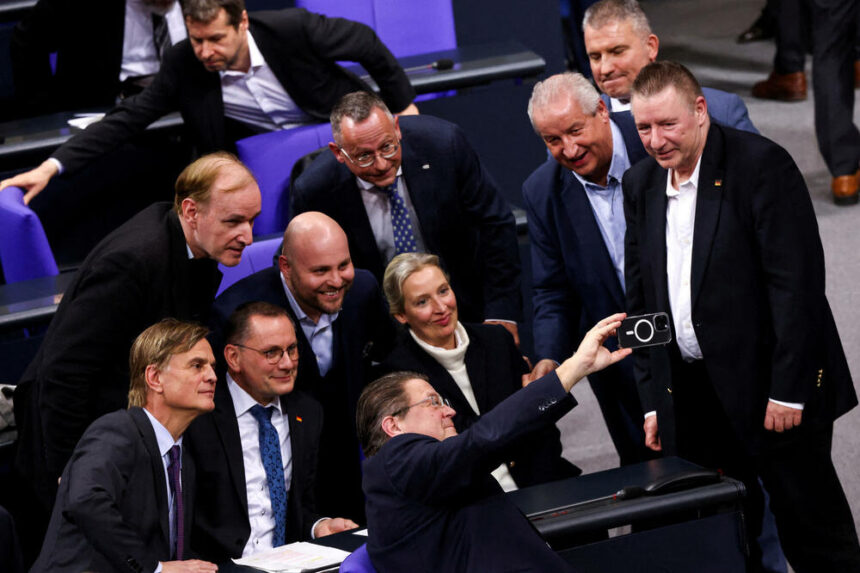German Parliament Breaks ‘Firewall’ Against AfD in Controversial Migration Vote
Berlin, Germany – The German Bundestag has passed a controversial migration bill with the support of the far-right Alternative for Germany (AfD), breaking a long-standing political agreement to exclude cooperation with extremist parties.
The bill, proposed by the conservative opposition bloc CDU/CSU, calls for stricter immigration restrictions. It was narrowly approved with 348 votes in favor, 345 against, and 10 abstentions, marking a political turning point as mainstream parties traditionally refused to pass legislation with AfD support.
Political Fallout and Scholz’s Warning
German Chancellor Olaf Scholz strongly criticized the move, calling it an “unforgivable mistake.” Speaking before the vote, Scholz warned opposition leaders that breaking the consensus against working with AfD undermines Germany’s democratic principles.
“For over 75 years, every democratic party in Germany has agreed: we do not cooperate with the extreme right,” Scholz stated. “Today, that basic principle has been violated.”
Scholz also accused CDU leader Friedrich Merz of backtracking on his previous pledge to avoid legislative cooperation with AfD. In November, Merz had advised mainstream parties against proposing bills that could pass with far-right backing.
CDU’s Risky Political Strategy
Merz has denied any formal cooperation with AfD but defended his party’s decision, positioning it as part of a broader electoral strategy to win back voters shifting to the far right. Analysts warn that by accepting AfD’s support, CDU/CSU risks legitimizing the party while alienating centrist voters.
“A so-called ‘firewall’ against AfD has now been breached,” said political analyst Klaus Richter. “This could lead to further normalization of AfD within Germany’s political system.”
Despite insisting that CDU will never form a coalition with AfD, polls suggest the strategy may be backfiring. CDU/CSU’s approval rating dropped three percentage points to 28%, while AfD rose to 21%, according to a Forsa Institute poll. Meanwhile, Scholz’s Social Democrats (SPD) gained two points, reaching 17%.
AfD Declares Victory
AfD’s co-leader and chancellor candidate Alice Weidel celebrated the vote as a sign that Germany’s political establishment can no longer ignore her party’s influence.
“The so-called ‘firewall’ was nothing more than an anti-democratic cartel agreement,” Weidel stated in the Bundestag. “Millions of German voters deserve representation, and today, that principle has been upheld.”
As national elections approach, the debate over cooperation with far-right parties is set to intensify, testing the stability of Germany’s long-established political order.






